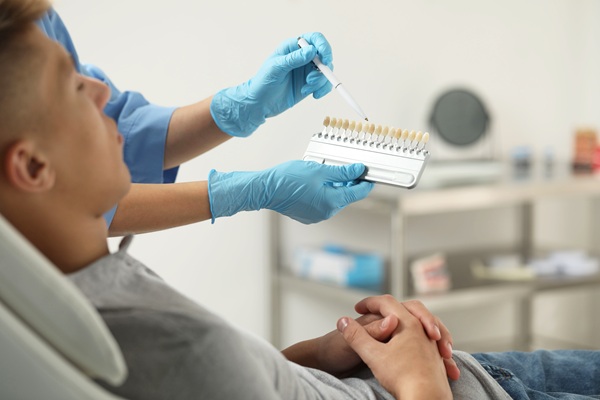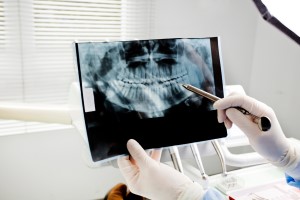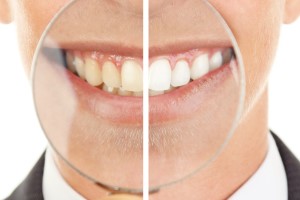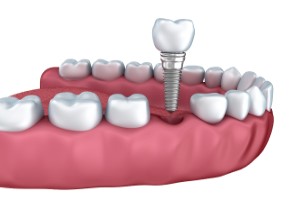Can Periodontal Disease Be Reversed?
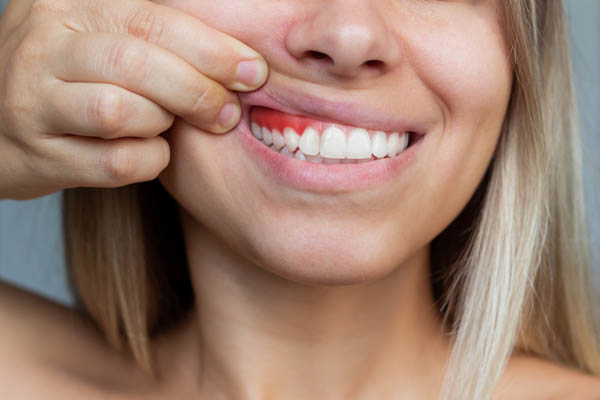
Do you think you might have the beginnings of periodontal disease? Wondering what to do about it if you do? The sooner you address any dental problems by making an appointment with an experienced dentist, the better chances you are going to have of reversing those dental problems.
Ready to find out more now about periodontal disease?
Periodontal disease is another name for gum disease, of which both refer to a bacterial infection that takes place in the gum tissue. If the infection is in its beginning stages, then it is called gingivitis. If the infection is in its end stages, then it is called periodontitis. The reason why someone would be diagnosed with periodontal disease is that they have too much bacteria in the mouth. When bacteria can stay in the mouth for long periods of time, it will eventually lead to an infection.
Keeping bacteria under control
The best way anyone can keep the bacteria in his or her mouth under control is to brush their teeth at least twice a day and floss their teeth at least once a day. Regular dental care allows for the removal of bacteria. When brushing and flossing are not done on a regular basis, then bacteria will begin to grow and even thrive, which is not supportive of a healthy mouth.
Can you reverse gum disease?
Yes, gum disease can be reversed. The way for dental patients to start reversing any gum disease affects they may be experiencing is for them to start taking proper care of their teeth. While brushing twice a day and flossing at least once a day is the standard recommendations, some people may need to brush and floss more often. A professional dentist can offer patients recommendations on exactly how often they should brush and floss their teeth, as well as any additional dental care recommendations they deem fit to provide.
Can you reverse early gum disease?
When gum disease is caught early, it is easiest to treat. Properly brushing and flossing on a daily basis can help to reverse early gum disease in as little as 30 days. Using an antimicrobial mouthwash can also be beneficial.
Can you reverse advanced gum disease?
While it is possible to reverse advanced gum disease, the patient is going to need to undergo a few intricate treatments. The process will begin with the dentist removing all of the tartar and plaque below the gum line. If additional procedures are necessary, like grafting, the dentist can also perform these procedures. After the infection is removed from the patient's mouth, they will need to maintain their new, gum disease free mouth with excellent oral hygiene steps.
Have periodontal disease?
If you think you have periodontal disease, then you need to make an appointment as soon as possible for treatment. If you do not seek treatment with a professional dentist, the problem will only continue to get worse. Once someone is diagnosed with periodontitis, he or she may have issues keeping his or her teeth. If you want to keep your natural teeth, then you will need not to have any gum problems you are currently experiencing.
Signs of periodontal disease include receding gums, loose teeth, bad breath, bleeding gums when brushing teeth and any abscesses that may be present.
Our office and trained staff are ready to answer any additional questions you may have. We can help guide you in making the best choices for your teeth and oral health. Contact us today and let us take each step with you in attaining the oral health you have been wanting!
Request an appointment in our Jackson Heights dentist office here: https://jacksonheightdental.com.
Check out what others are saying about our dental services on Yelp: Periodontal Disease in Jackson Heights, NY.
Recent Posts
Dental bonding is one of the most versatile and minimally invasive restorative and cosmetic dental procedures. Dental bonding is the go-to procedure for many patients looking to fix imperfections or enhance their smile, from enhancing the appearance and shape of teeth to repairing damaged enamel. Whether you are new to cosmetic dentistry or considering touch-ups…
A dental bridge is a reliable, effective solution for tooth loss, as it offers functional and aesthetic benefits. This dental restoration helps improve chewing, speech, and overall oral health while maintaining the smile’s natural structure. Patients interested in bridges as tooth replacements can benefit from learning more about their basics, placement process, and long-term care…
A damaged or decayed tooth can affect your confidence and overall oral health. Fortunately, a same day crown can help restore your smile in a single dental visit. This efficient and innovative restoration allows you to improve your teeth without the lengthy process associated with traditional crowns.Same day crowns are custom-designed dental restorations prepared and…
All-on-4 dental implants can effectively restore a complete smile, offering a permanent and natural-looking alternative to traditional dentures. Many patients who have lost most or all of their teeth can qualify for this procedure, as it mainly requires good general and oral health. Learning about the basics of the All-on-4 procedure, its benefits, and eligibility…

